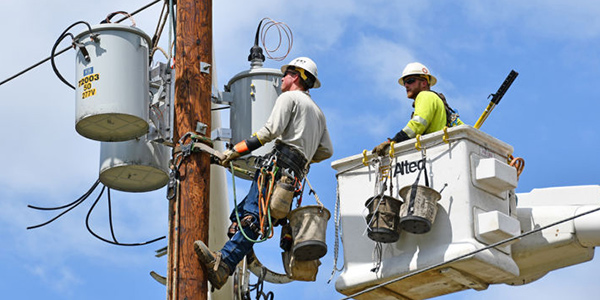NERC is preparing a Lessons Learned report on the electrical industry’s response to the COVID-19 pandemic to help utilities prepare for future emergencies.
Speaking during a meeting of the Event Analysis Subcommittee (EAS) on Monday, Richard Hackman, NERC senior event analysis adviser, said the idea of compiling the industry’s experiences with the pandemic started in March, when utilities began to adjust their business practices to reduce the risk of losing critical personnel while still providing full service to customers.
Real-world Test for Contingency Planners
“I remembered that back in 2006, there were a whole lot of entities out there creating business continuity plans for all sorts of disasters,” Hackman said. “Pandemics [were] one of the things they tried to cover in that: how would they handle it if they had to operate in a pandemic environment, keep their controllers safe from disease carriers, segregate shifts … provide supplies to them while they are continuously on site and all sorts of issues that might come up.”
The Lessons Learned report, which will be produced by the EAS and the Operating Reliability Subcommittee, will compare these plans with their real-world test during the COVID-19 outbreak. NERC noted earlier this year that the arrival of an actual pandemic had exposed vulnerabilities that many in the industry had not anticipated — for example, in the increased risk from cyberattacks after many employees started working remotely. (See Pandemic Poses Long-term Reliability Challenges.)
The unexpected duration of the pandemic will also be explored by the groups; as Hackman acknowledged, even utilities that had contingency plans specifically for pandemics rarely anticipated the emergency to last longer than a few months. As a result, many companies had to adjust their plans on the fly to ensure they could remain in their emergency stances indefinitely. Utilities could study the effectiveness of these improvisations as they re-evaluate their plans following a return to normal operations.
Team to Probe Regulatory Response
In light of the relaxation of remote work postures by some utilities, the subcommittees hope to evaluate the effectiveness of companies’ plans for ending their emergency policies (though many industry participants, including NERC itself, plan to keep their offices closed for the foreseeable future). (See NERC Offices to Stay Closed Through December.) In addition, the subcommittees plan to examine the actions that regulatory agencies and policymakers took in response to the outbreak and how they helped to keep the grid stable.
“There were some things that are schedule-related that FERC, NERC Relax Compliance in Light of COVID-19.) “Are there other things that they could have used some regulatory relaxation on, and [can we] establish a list of such things, prior to the next time we’re brought into such an event?”
The subcommittees are seeking volunteers to participate in the drafting process. Once the team is formed, it will solicit notes and other information from utilities that could be helpful in creating the report. The subcommittees plan to begin work on the draft report by the end of October.
In response to a question about the protection of sensitive information, Hackman confirmed that the team will be careful to safeguard not only specific entities’ confidential data but also information that could point to more general weaknesses in the wider grid.
“We can communicate lessons learned in a generic fashion. There is some specific information in those notes that we might want to either genericize or leave out. … We don’t want to … provide a [path] to the bad guys on how to screw up a business plan,” he said.




